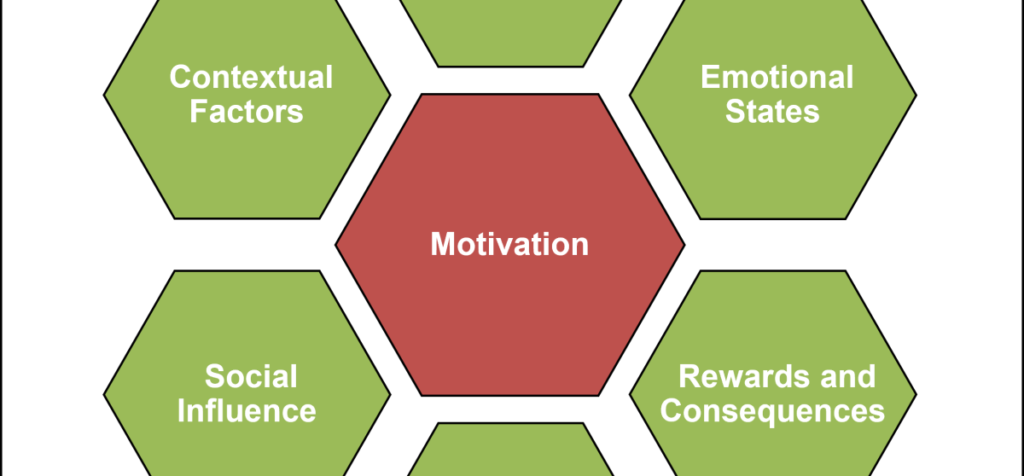The Motivational Integration and Development (MID) Framework

The “Motivational Integration and Development Model” is a holistic approach to motivation, incorporating the various factors and influences that play a role in an individual’s motivations, and emphasizing the idea of growth and development over time.
The Motivational Integration and Development (MID) framework is a theoretical approach to understanding human motivation and behaviour. The framework is built on the idea that motivation and behaviour are driven by a complex interplay of individual needs, environmental factors, and social and cultural influences. It draws on a number of theories and concepts from social and personality psychology, including self-determination theory, social cognitive theory, and intergroup relations theory. The framework highlights the importance of understanding how the social and cultural contexts in which individuals are embedded can influence their motivations and behaviours. This includes considering the role of rewards and punishments, the impact of social identity and social comparison, and the influence of cultural values and norms.
The 6 Pillars of MID
The framework includes the following concepts:
Emotional States: Emotions play a significant role in motivation. Positive emotions, such as happiness, satisfaction, and pride, can increase motivation, while negative emotions, such as anxiety, boredom, or frustration, can decrease motivation. [1][2][3]
Psychological Needs: These are core, Intrinsic motivations. These behaviours are driven by internal factors such as personal interests, values, and enjoyment. People are more motivated when they feel in control of their own lives and are making choices that align with their own values and interests. According to Self-Determination Theory, the degree to which people feel self-determined is positively associated with intrinsic motivation. [4][5][6]
Rewards and Consequences: Often called Extrinsic motivation, this refers to behaviour that is driven by external factors such as tangible prizes, punishments, or social pressure. Extrinsic motivation can play a role in behaviour but is most effective when it is aligned with individuals’ intrinsic motivations and values.[1][4][7]
Task Motivation and Goal Orientation: Setting specific, challenging goals and receiving meaningful feedback can increase motivation in tasks. Feedback can either be positive or negative, but it is most effective when it helps individuals improve their performance. This is often linked with Rewards and Consequences [5][8][9]
Social Influence: Social factors, such as the beliefs and behaviours of others, and perception of self-efficacy, play a significant role in motivation. People are more motivated when they believe that they have the ability to succeed and that their actions align with the beliefs and behaviours of others. [10][11][12][14]
Contextual Factors: Motivation is also influenced by contextual factors, including personality, environment, and cultural norms. Understanding motivation requires considering the unique context in which it occurs. [10][11][13]
MID Framework
References
Deci, E. L., Koestner, R., & Ryan, R. M. (1999). A meta-analytic review of experiments examining the effects of extrinsic rewards on intrinsic motivation. Psychological bulletin, 125(6), 627.
Emmons, R. A. (1999). The psychology of ultimate concerns: Motivation and spirituality in personality. Guilford Press.
Schwarz, N. (1990). Feelings as information: Informational and motivational functions of affective states. In E. T. Higgins & R. M. Sorrentino (Eds.), Handbook of motivation and cognition: Foundations of social behavior, Vol. 2, pp. 527–561).
Deci, E. L., Koestner, R., & Ryan, R. M. (2001). Extrinsic rewards and intrinsic motivation in education: Reconsidered once again. Review of Educational Research, 71(1), 1-27.
Deci, E. L., & Ryan, R. M. (2000). The “what” and “why” of goal pursuits: Human needs and the self-determination of behavior. Psychological Inquiry, 11(4), 227-268.
Ryan, R. M., & Deci, E. L. (2017). Self-Determination Theory: Basic Psychological Needs in Motivation, Development, and Wellness. Guilford Publications.
Murayama, K., & Elliot, A. J. (2010). The effect of reward contingencies on intrinsic motivation: A meta-analytic review. Journal of Educational Psychology, 102(4), 880-908.
The post The Motivational Integration and Development (MID) Framework appeared first on Gamified UK – #Gamification Expert.







